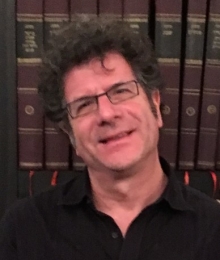Law and Religion
Course Information
- Course Number
- L9450-LEC
- Curriculum Level
- Upperclass
- Areas of Study
- Constitutional Law, Human Rights, Interdisciplinary Legal Studies, Legal History and Law and Philosophy
- Type
- Lecture
Section 001 Information
Instructor
 Nathaniel Berman
Visiting Professor of Law
Nathaniel Berman
Visiting Professor of Law
Section Description
The Supreme Court's jurisprudence on religion has undergone a dramatic transformation in recent decades, rapidly accelerating over the past dozen years. This transformation affects both the Constitutional strictures of the First Amendment and a variety of statutory provisions, particularly the Religious Freedom Restoration Acts. The Court has expanded a particular view of the "free exercise" of religion, while limiting the prohibition on the "establishment of religion." We will study this transformation by situating it in relation to the very different landmark decisions of the mid-20th century. In so doing, we will explore the ways that judicial decisions construct the very category of "religion" in setting the boundaries between secular law and religious life. Is "religion," as a separate sphere of society, a cultural and historically specific construct? Are there universally recognized criteria for "religion," such as an organized community or a belief in God? Should religious communities be exempt from some secular legal regimes, such as anti-discrimination law -- even while benefiting from a variety of government subsidies? What influence should religious parents be able to exert over the content of education in public schools? We will draw on perspectives from political theory and theology to enrich our understanding of the legal materials.
- School Year & Semester
- Fall 2025
- Location
- WJWH L104
- Schedule
-
Class meets on
- Monday
- Wednesday
- Points
- 3
- Method of Evaluation
- Paper
- J.D Writing Credit?
- Minor (upon consultation)
Learning Outcomes
- Primary
-
- At the end of the course, students will have acquired facility in making arguments about Constitutional and statutory doctrines concerning the relationship between religion and American law.
- At the end of the course, students will have acquired facility in close reading of the cases in the course materials, as well as cases that they will research and summarize.
- At the end of the course, students will have acquired an understanding of the differences in jurisprudential philosophy that informs conflicting judical opinions.
- At the end of the course, students will have acquired understanding of the historical changes in this legal field over the past 3/4 of a century.
- At the end of the course, students will have acquired understanding of deeper issues of political theory and theology that are implicit in the judicial opinions.
Course Limitations
- Instructor Pre-requisites
- None
- Instructor Co-Requisites
- None
- Requires Permission
- No
- Recommended Courses
- None
- Other Limitations
- Not suitable for first year students.